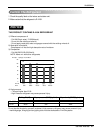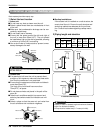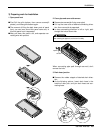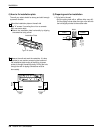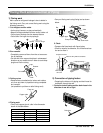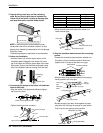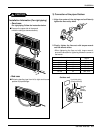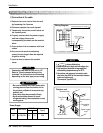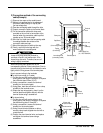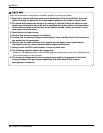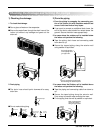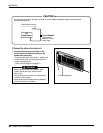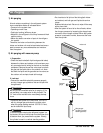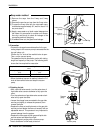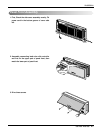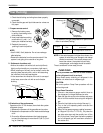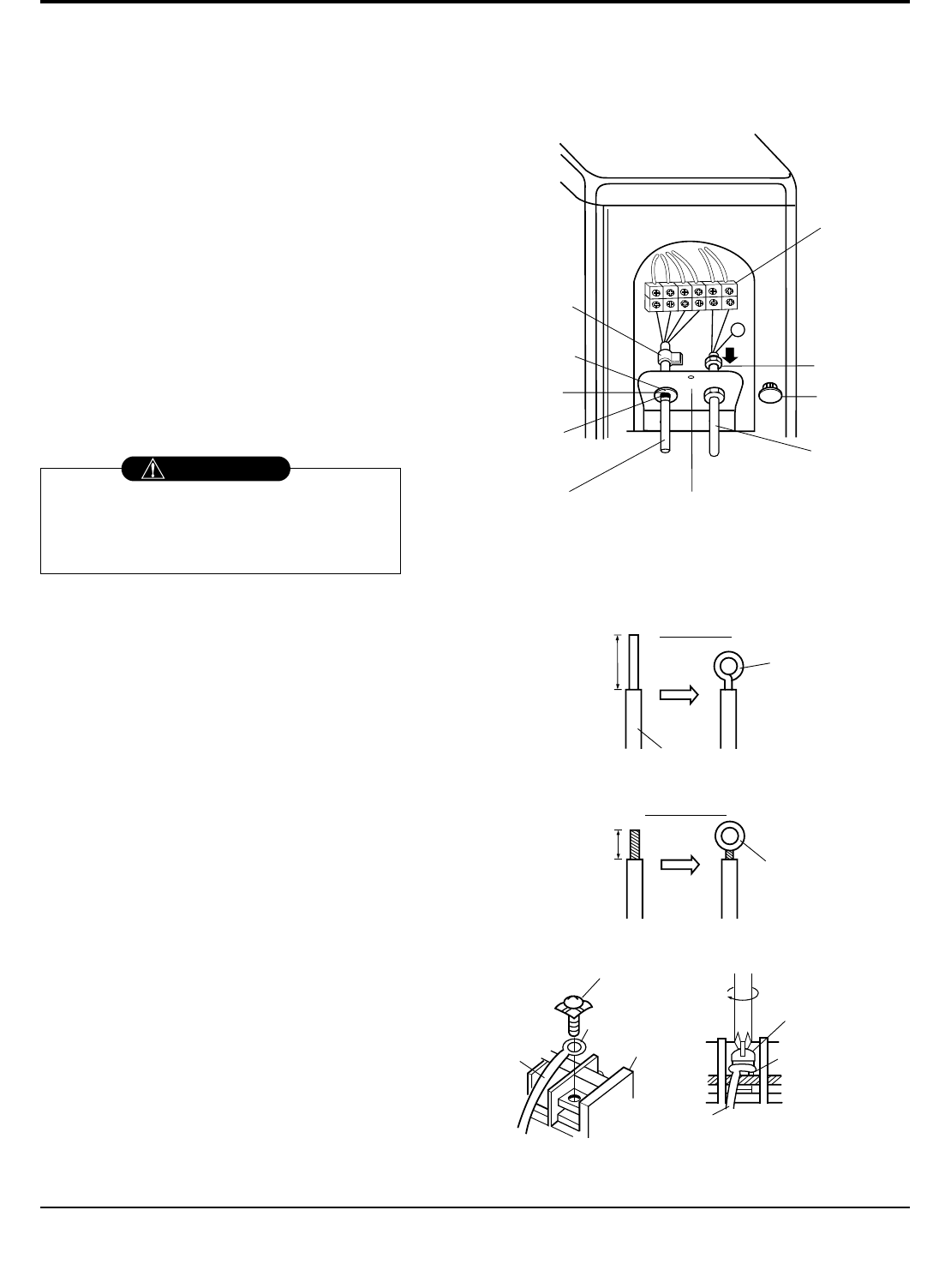
Service Manual 35
Installation
G
Terminal
block
Cap
(Remove)
Clamp cord
Lock nut
Conduit panel
Loop
Round
terminal
Screw with
special washer
Screw with
special washer
Round terminal
Terminal plate
Wire
Wire
Round terminal
Insulation
Strip 25mm(15/16")
Strip 10mm(3/8")
Solid wire
Cap(Reuse)
Taping
(for sealing)
Low voltage line
(connecting cable)
Power supply line
(1ø, 115V, 208/230V)
Hole
(for low voltage line)
Strand wire
2) Connection method of the connecting
cable(Example)
(1) Dismount two-caps on the conduit panel.
(2) Make a hole appropriate for the passage of
connection cable through on cap by tool.
(for low voltage line)
(3) Pass the connecting cable through the hole.
(4)
Properly connect the cable on the terminal block.
(5) Fix the connection cable with clamp cord
provided on the unit not to have strain at the
terminal when the connection cable is pulled
outside up to a 35 pound weight.
(6) Wind the vinyl tape round the connecting cable
for sealing between the surface of the
connection cable and cap.
(7) Mount the taped part of cable on the cap.
(8) Finally, mount the holed cap with the
wound cable on the conduit panel.
When connecting each power wire to the
corresponding terminal, follow instructions "How to
connect wiring to the terminals" and fasten the wire
tightly with the fixing screw of the terminal plate.
How to connect wiring to the terminals
■ For solid core wiring (or F-cable)
(1) Cut the wire end with a wire cutter of wire-
cutting pliers, then strip the insulation to expose
the solid wire about 25mm(15/16")
(2) Using a screwdriver, remove the terminal
screw(s) on the terminal plate.
(3) Using pliers, bend the solid wire to from a loop
suitable for the terminal screw.
(4) Shape the loop wire properly, place it on the
terminal plater and tighten securely with the
terminal screw using a screwdriver.
■ For strand wiring
(1) Cut the wire end with a wire cutter or wire-
cutting pliers, then strip the insulation to expose
the strand wiring about 10mm(3/8").
(2) Using a screwdriver, remove the terminal
screw(s) on the terminal plate.
(3) Using a round terminal fastener or pliers,
securely clamp each stripped wire end with a
round terminal.
(4) Position the round terminal wire, and replace
and tighten the terminal screw using a
screwdriver.
Loose wiring may cause the terminal to
overheat or result in unit malfunction. A fire
hazard may also exist. Therefore, be sure all
wiring is tightly connected.
WARNING



